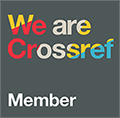İngilizce Öğretmeni Adaylarının Dil Öğretiminde Asistanlık Uygulamasına İlişkin Görüşleri
DOI:
https://doi.org/10.33308/26674874.2024382716Anahtar Kelimeler:
Öğretim Asistanlığı- Öğretim Asistanlığı Uygulaması- Öğretim Kalitesi- Yabancı Dil Uygulaması- Yabancı Dilde Öğretmen EğitimiÖzet
Bu çalışmanın amacı İngilizce Öğretmenliği (ELT) son sınıf öğrencilerinden toplanan Öğretmen Asistanlığı Uygulaması (TAP) hakkındaki görüşlerini analiz etmektir. Temel amaç, TAP'ın yabancı dil olarak İngilizce öğretmen adaylarının öğretim niteliklerini nasıl etkilediğini araştırmak ve ortaya çıkarmaktır. Araştırma nitel bir yaklaşım ve amaçlı örnekleme yaklaşımı kullanılarak tasarlanmıştır. Veriler açık uçlu sorular kullanılarak toplanmış ve nitel içerik analizi yaklaşımı kullanılarak analiz edilmiştir. Kanıtlara dayanarak TAP'a ilişkin Pedagojik içerik bilgisi ve öğretme niteliklerinde mükemmelleşme, farkındalık yaratma ve öğretmen rollerinin iyileştirilmesi, sınıfta öğretmenlik mesleğini profesyonel olarak gerçekleştirmenin yararları ve çoklu görevlerin geliştirilmesi gibi önemli temalar ortaya çıkarılmıştır. Öğretmen adaylarından alınan yanıtlarla, bahsedilen temaların, öğretmenlik ve mesleki bağlamda pratik becerilerin geliştirilmesi için olumlu bir atmosfer oluşturduğu sonucuna varılmıştır.
İndirmeler
Referanslar
Abrami, P. C., Bernard, R. M., Borokhovski, E., Waddington, D. I., Wade, C. A., & Persson, T. (2015). Strategies for teaching students to think critically: A meta-analysis. Review of Educational Research, 85(2), 275–314. https://doi.org/10.3102/0034654314551063 DOI: https://doi.org/10.3102/0034654314551063
Bernard, H.R. (2002). Research methods in anthropology: Qualitative and quantitative approaches (3rd Ed.). Alta Mira Press.
Boei, F., Dengerink, J., Geursen, J., Kools, Q., Koster, B., Lunenberg, M., & Willemse, M. (2015). Supporting the professional development of teacher educators in a productive way. Journal of Education for Teaching, 41, 351–368. https://doi:10.1080/02607476.2015.1080403 DOI: https://doi.org/10.1080/02607476.2015.1080403
Borg, S. (2006). The distinctive characteristics of foreign language teachers. Language Teaching Research, 10(1), 3–31. https://doi.org/10.1191/1362168806lr182oa DOI: https://doi.org/10.1191/1362168806lr182oa
Brooks, V., & Sikes, P. (1997). The good mentor guide: Initial teacher education in secondary schools. Open University Press. https://doi.org/10.1080/0141192970230204 DOI: https://doi.org/10.1080/0141192970230204
Buckley, J. W., & Chiang, H. (1976). Research methodology and business decisions. Natl Assoc of Accat.
Byram, M. (1997). Teaching and assessing intercultural communicative competence. Multilingual Matters.
Campbell, S., Greenwood, M., Prior, S., Shearer T., Walkem K., Young S., Bywaters D., & Walker K. (2020). Purposive sampling: complex or simple? Research case examples. Journal of Research in Nursing, 25(8), 652–661. https://doi:10.1177/1744987120927206 DOI: https://doi.org/10.1177/1744987120927206
Creswell, J. W. (2014). Research design: qualitative, quantitative, and mixed methods approaches (4th ed.). Sage Publications.
Crotty, M. (1998). The foundations of social research: meaning and perspective in the research process. Sage.
Cummins, J. (2001). Bilingual children’s mother tongue: Why is it important for education? Sprogforum, 7, 15-20. Dale, E. (1969). Audio-visual methods in teaching (3rd ed.). Holt, Rinehart & Winston. https://doi.org/10.1080/09523986908547873 DOI: https://doi.org/10.1080/09523986908547873
Datnow, A., & Hubbard, L. (2016). Teacher capacity for and beliefs about data-driven decision making: A literature review of international research. Journal of Educational Change, 17, 7–28 https://doi.org/10.1007/s10833-015-9264-2. DOI: https://doi.org/10.1007/s10833-015-9264-2
Dincer, A., Goksu, A., Takkac, A., & Yazici, M. (2013). Common characteristics of an effective English. The International Journal of Educational Researchers, 4(3), 1–8.
Downe‐Wamboldt, B. (1992). Content analysis: method, applications, and issues. Health Care for Women International, 13(3), 313-321. https://doi.org/10.1080/07399339209516006 DOI: https://doi.org/10.1080/07399339209516006
Dörnyei, Z. (2007). Research methods in applied linguistics: Quantitative, qualitative, and mixed methodologies. Oxford University Press.
Elo, S., & Kyngäs, H. (2008). The qualitative content analysis process. Journal of Advanced Nursing, 62(1), 107-115. https://doi.org/10.1111/j.1365-2648.2007.04569.x DOI: https://doi.org/10.1111/j.1365-2648.2007.04569.x
Freeman, D. (2002). The hidden side of the work: teacher knowledge and learning to teach. A perspective from North American educational research on teacher education in English language teaching. Language Teaching, 35(1), 1-13. http://dx.doi.org/10.1017/S0261444801001720. DOI: https://doi.org/10.1017/S0261444801001720
Hammarberg, K., Kirkman, M., & de Lacey, S. (2016). Qualitative research methods: when to use them and how to judge them. Human Reproduction, 31(3), 498-501. https://doi.org/10.1093/humrep/dev334 DOI: https://doi.org/10.1093/humrep/dev334
Harvey, L. (1994). Continuous quality improvement: a system-wide view of quality in higher education. In P. Knight (Ed.) University-wide change, staff and curriculum development, staff and educational development association (pp.47-70). SEDA Paper.
Ho, S. K., & Wearn, K. (1995). A TQM model for higher education and training. Training for Quality, 3(2), 25–33. https://doi.org/10.1108/09684879510087503 DOI: https://doi.org/10.1108/09684879510087503
Inbar-Lourie, O. (2008). Constructing a language assessment knowledge base: A focus on language assessment courses. Language Testing, 25(3), 385-402. https://doi.org/10.1177/0265532208090158. DOI: https://doi.org/10.1177/0265532208090158
Harris, J., & Hofer, M. (2011) Technological Pedagogical Content Knowledge (TPACK) in action. Journal of Research on Technology in Education, 43(3), 211-229. https://doi.org/10.1080/15391523.2011.10782570 DOI: https://doi.org/10.1080/15391523.2011.10782570
Lee, J. J. (2010). The uniqueness of EFL teachers: Perceptions of Japanese learners. TESOL Journal, 1(1), 23–48. https://doi.org/10.5054/tj.2010.214881 DOI: https://doi.org/10.5054/tj.2010.214881
Lenkauskaitė, J. (2020). Service-learning in problem solving in the community: Pre-service teachers’ reflection on their experience. Social Welfare: Interdisciplinary Approach, 1(10), 67–81. https://doi.org/10.21277/sw.v1i10.523 DOI: https://doi.org/10.21277/sw.v1i10.523
McKeegan, P. (1998). Using undergraduate teaching assistants in a research methodology course. Teaching of Psychology, 25(1), 11-14. https://doi.org/10.1207/s15328023top2501_4 DOI: https://doi.org/10.1207/s15328023top2501_4
Odom, F. S., Ho, P. S., & Moore, L. L. (2014). The Undergraduate Leadership Teaching Assistant (ULTA): A high-impact practice for undergraduates studying leadership. Journal of Leadership Education, 13(2), 152-161. https://doi.org/10.12806/V13/I2/A2 DOI: https://doi.org/10.12806/V13/I2/AB2
Palinkas, L. A., Horwitz, S. M., Green, C. A., Wisdom, J. P., Duan, N., & Hoagwood, K. (2015). Purposeful sampling for qualitative data collection and analysis in mixed method implementation research. Administration and Policy in Mental Health, 42(5), 533–544. https://doi.org/10.1007/s10488-013-0528-y DOI: https://doi.org/10.1007/s10488-013-0528-y
Patton, M. Q. (2002). Two decades of developments in qualitative inquiry: A personal, experiential perspective. Qualitative Social Work, 1(3), 261-283. https://doi.org/10.1177/1473325002001003636 DOI: https://doi.org/10.1177/1473325002001003636
Popham, W. J. (1993). Educational evaluation. Simon and Schuster Publishing, Inc.
Sahney, S., Banwet, D. K., & Karunes, S. (2004). Conceptualizing total quality management in higher education. The TQM Magazine, 16(2), 145–159. https://doi.org/10.1108/09544780410523044 DOI: https://doi.org/10.1108/09544780410523044
Schreier, M. (2012). Qualitative content analysis in practice. SAGE Publications. https://doi.org/10.4135/9781529682571 DOI: https://doi.org/10.4135/9781529682571
Shulman, L. S. (1986). Paradigms and research programs in the study of teaching: A contemporary perspective. In M.C. Wittrock (Ed.), Handbook of research on teaching (pp. 3-36). Macmillan.
Spradley, J. P. (1979). Ethnography and culture. In J. P. Spradley (Ed.), The ethnographic interview (pp. 3). Brace Jovanovich College Publishers.
Stearns, P. N., & Gienow-Hecht, J. C. (2010). Emotions history in the United States: Goals, methods, and promise. In Jessica CE Gienow-Hecht (Ed.) Emotions in American history: An international assessment (pp.15-27). Berghahn Books.https://doi.org/10.1515/9781845458195-005 DOI: https://doi.org/10.1515/9781845458195-005
Stronge, J. H. (2007). Qualities of effective teachers (2nd ed.). ASCD.
Wang, M. C., Haertel, G. D., & Walberg, H. J. (1993). Towards a knowledge base for school learning. Review of Educational Research, 63, 249-294. https://doi.org/10.3102/00346543063003249 DOI: https://doi.org/10.3102/00346543063003249
İndir
Yayınlanmış
Nasıl Atıf Yapılır
Sayı
Bölüm
Lisans
Telif Hakkı (c) 2024 Yaşadıkça Eğitim

Bu çalışma Creative Commons Attribution-NonCommercial-NoDerivatives 4.0 International License ile lisanslanmıştır.
Sisteme yüklemiş olunan makalenin kapsamı, sunduğu bulgular ve sonucu ve yorumları konusunda Yaşadıkça Eğitim [YE] dergisi Sahibi, Editör, Editör Yardımcısı, Hakemler ve Editör Kurulu'nun hiçbir sorumluluk taşımadığını kabul ederim.
Makalenin özgün olduğunu, herhangi bir başka dergiye yayımlanmak üzere gönderilmediği, daha önce yayımlanmadığını Yaşadıkça Eğitim [YE] dergisi Editörlüğü'ne beyan ederim.
Başlığı belirtilen makalenin, 5846 sayılı Fikir ve Sanat Eserleri Yasasının 22. maddesi gereğince çoğaltma, 23. maddesi gereğince yayma ve 25. maddesi gereğince her türlü taşıyıcı materyal üzerinde veya elektronik ortamda kamuya iletim haklarını Yaşadıkça Eğitim [YE] dergisine karşılıksız, koşulsuz ve süresiz olarak devredildiği, makale ile ilgili devredilen hakların dilediği zaman, mekan ve koşullarda kullanmaya Yaşadıkça Eğitim [YE] dergisinin yayıncısı olarak İstanbul Kültür Üniversitesi'nin yetkili kılınacağını onaylarım.





